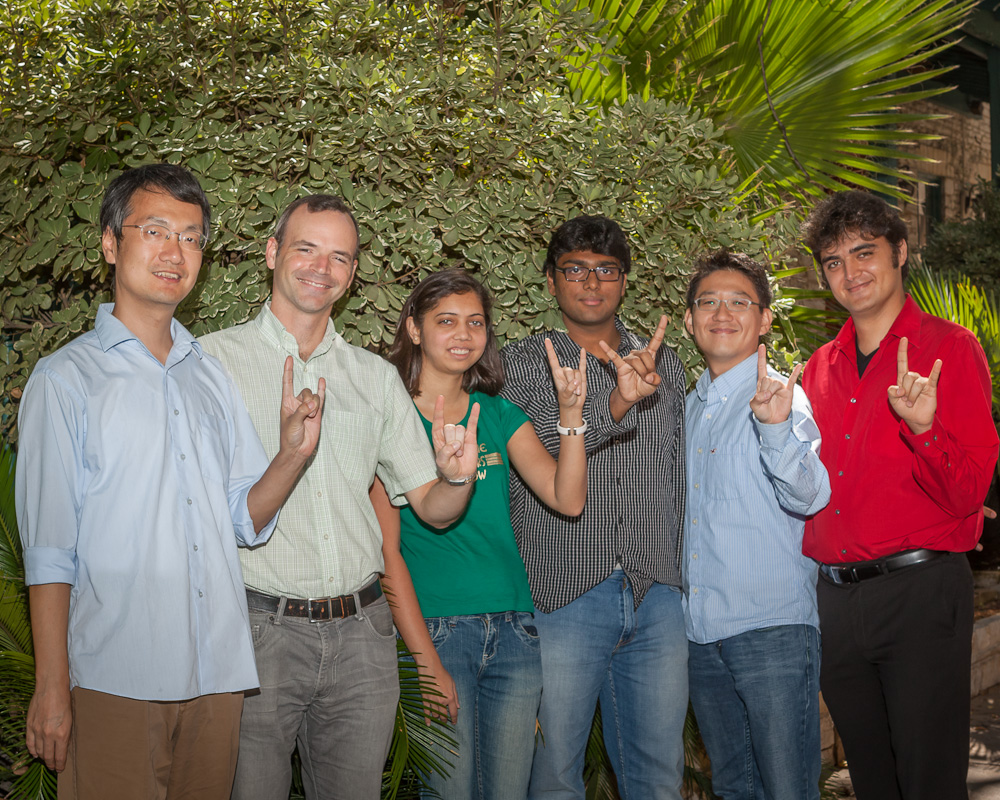
How would you characterize the purpose and goals of the Information Retrieval and Crowdsourcing Lab?
To advance the state-of-the-art methodologies for search (i.e., how we both build effective search engines and measure that effectiveness, across a diverse range of search tasks) and human computation / crowdsourcing (i.e., how we effectively mobilize and organize people online to accurately perform information processing tasks, particularly difficult tasks which remain beyond what today's best intelligent systems can achieve automatically).
What attributes (e.g. skills, interests, background) make a student an ideal candidate to work with you in the IR & Crowdsourcing Lab?
My funded research assistants (RAs) typically have a computer science or equivalent background, with strong backgrounds in both computing and math. Beyond my RAs, I have also advised many other students from other backgrounds who bring other diverse skills to bear on these problem areas.
For example, I recently advised published research and a Master's Thesis on legal issues in crowdsourcing. This research anticipated subsequent litigation that has occurred regarding the question of whether "microwork contributors" on crowdsourcing platforms should be classified as employees rather than independent contractors. Given how thoroughly such crowdsourcing has become ingrained in how we build intelligent systems today, I was particularly concerned that our technical house of cards could come crashing down if the legal foundation proved faulty. I mention this just as one example of how crowdsourcing is such a fascinating socio-technical area which offers such a rich diversity of interesting research questions which students from different backgrounds could pursue.
The number one need by far a student needs to succeed is the passion, drive, and imagination to do good work which will change the world. We are not standing by the sidelines to wait to see what tomorrow's world will look like. Instead, we are the ones leading the charge to build technology and make discoveries that will impact the world we live in today and make dreams for the future become a reality. This is what means to be at world-class research university and lead the charge at the forefront of science. There's no better place to be.
How many departments on campus are currently represented in the IR & Crowdsourcing Lab and what possible collaborations do you foresee in the future?
We regularly work with faculty and students from computer science (CS), electrical and computer engineering (ECE), and linguistics. We also interact with others from Mathematics, Statistics and Scientific Computing (to be renamed "Statistics and Data Science"), and McCombs' Information, Risk and Operations Management. Currently we have two pending projects with others units: one with ECE which uses search engine technology to find bugs in software, and one with CS which integrates AI and crowdsourcing to create an intelligent building, a form of "ubiquitous computing".
What are some of the resources the lab has to offer?
Google has kindly donated a pool of Android Phones and Google TV devices, and we have some fast computers and cool datasets. The main resource is the awesome students that are there to work with, along with lots of free caffeine!
Where can people learn more about the Information Retrieval and Crowdsourcing Lab?
My crowdsourcing webpage has become the defacto place on the Internet to track important research events (conferences, journals, tutorials and talks, etc.). I created it just to track these things for myself, but it has turned out to prove useful to many others as well.
I've been fortunate to be part of two significant research initiatives charting future research.
- In terms of search engine technology, SWIRL'12: The Second Strategic Workshop on Information Retrieval in Lorne, brought together 45 of the top researchers in the field to chart a roadmap of long-term challenges and opportunities for the field. Our report is online at: http://sigir.org/forum/2012J/2012j_sigirforum_A_allanSWIRL2012Report.pdf
.
- In terms of crowdsourcing, I worked with leading researchers from seven other universities to envision the future of crowdsourcing and important research challenges and opportunities to be tackled. The paper appeared at ACM CSCW 2013 and can be found online at: http://papers.ssrn.com/sol3/papers.cfm?abstract_id=2190946.

